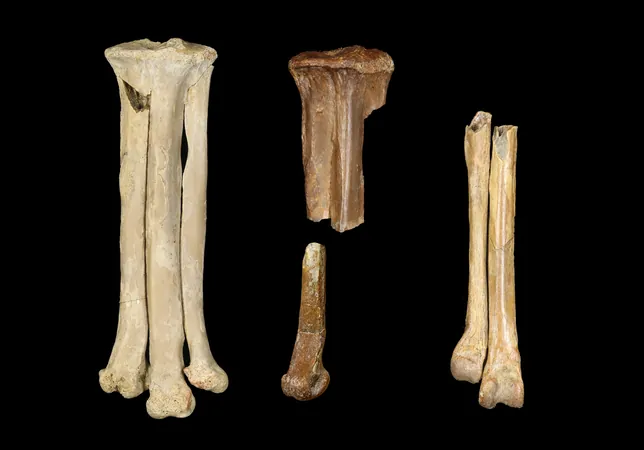
Shocking Link: Severe Mental Illness Ramps Up Fragility Fracture Risk for Those Over 50!
2024-10-15
Author: Emma
Groundbreaking Study Reveals Significant Risks
A groundbreaking new study has revealed that individuals over the age of 50 suffering from severe mental illness (SMI) face a significantly elevated risk of experiencing fragility fractures compared to the general population. However, the alarming aspect is that these individuals may be less likely to receive proper osteoporosis diagnoses, according to research led by experts at University College London (UCL).
Understanding Fragility Fractures
Fragility fractures are particularly concerning; these breaks typically occur due to minor falls or impacts that would not ordinarily result in such injuries. Often associated with osteoporosis—a condition characterized by weakened bones—these fractures pose a serious health threat, especially for older adults.
A Closer Look at the Research
Published in the esteemed British Journal of General Practice, the study analyzed over 440,000 GP records of patients aged 50 and above from 2000 to 2018. By investigating the diagnoses of osteoporosis and fragility fractures among those with severe mental illness, the researchers shed light on a vital public health issue.
The Impact of Severe Mental Illness
Severe mental illness encompasses serious conditions such as schizophrenia, bipolar disorder, and various forms of psychosis, which significantly impair daily functioning and the ability to maintain employment. What’s even more troubling is that individuals with SMI often grapple with poor physical health and are at heightened risk for chronic health conditions, including obesity, diabetes, and heart disease, at a younger age than their counterparts without mental health issues.
Key Findings of the Study
The findings of the study revealed that both men and women with severe mental illness are at increased risk for fragility fractures. Notably, men diagnosed with SMI were documented as being twice as likely to suffer a fragility fracture than to receive a diagnosis of osteoporosis. This suggests a concerning trend of osteoporosis going unrecognized in this demographic.
For women in the study, particularly those between the ages of 50-54 and over 80, fragility fractures were also documented more frequently than osteoporosis diagnoses. This underdiagnosis could lead to grave consequences for the physical well-being of many vulnerable individuals not receiving appropriate care.
Advocating for Proactive Interventions
In light of these findings, researchers are urgently advocating for proactive interventions, including bone density measurements, medications for osteoporosis, and non-drug approaches like exercise programs and dietary advice specifically tailored for those with severe mental illness.
Calls for Awareness and Comprehensive Health Checks
Lead author Dr. Christina Avgerinou, an academic GP from UCL, pointed out the serious neglect of physical health among patients with severe mental illnesses, resulting in higher rates of premature mortality. She stated, “Our findings underscore the urgent need for raising awareness about osteoporosis within this population. It’s crucial that healthcare providers focus on comprehensive health checks that prioritize both mental and physical health.”
Dr. Avgerinou continued, hypothesizing that a lack of awareness about osteoporosis might be driving underdiagnosis or that other pressing health issues take precedence in treatment discussions. The study did not delve into the exact reasons for the trends observed, but emphasized the need to rethink healthcare strategies to ensure that people with severe mental illnesses receive the holistic care they need.
A Call for Better Healthcare Policies
As the healthcare landscape evolves, it is crucial for those in power to recognize and address these disparities, aiming to safeguard the health of one of society's most vulnerable groups. This research serves as a clarion call for better healthcare policies that recognize the interconnectedness of mental and physical health.









 Brasil (PT)
Brasil (PT)
 Canada (EN)
Canada (EN)
 Chile (ES)
Chile (ES)
 España (ES)
España (ES)
 France (FR)
France (FR)
 Hong Kong (EN)
Hong Kong (EN)
 Italia (IT)
Italia (IT)
 日本 (JA)
日本 (JA)
 Magyarország (HU)
Magyarország (HU)
 Norge (NO)
Norge (NO)
 Polska (PL)
Polska (PL)
 Schweiz (DE)
Schweiz (DE)
 Singapore (EN)
Singapore (EN)
 Sverige (SV)
Sverige (SV)
 Suomi (FI)
Suomi (FI)
 Türkiye (TR)
Türkiye (TR)